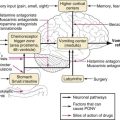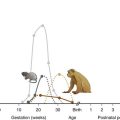Casinos are carefully engineered spaces designed to maximize revenue. With bright lights, upbeat music, free drinks and the promise of quick riches, they provide the perfect recipe to keep players gambling. But the psychological tricks casinos use go much deeper than creating a festive atmosphere.
Every detail in 1RedCasino, from the lack of clocks and windows to the maze-like layout, is strategically crafted to get visitors to spend more time and money. Let’s explore some sneaky ways casinos capitalize on human behavior biases to boost their bottom line.
Lights, Sounds, Action – Overstimulating the Senses
The sights and sounds of a casino floor are not random. The chaotic environment is intentionally overstimulating, bombarding our senses with stimuli to encourage impulsive betting. Slot machines blink and play catchy tunes when you win to celebrate small victories. These lights and sounds trigger the release of dopamine, making gambling more enjoyable and addictive.
The upbeat music played is also faster than the average heartbeat, energizing players to take more risks. And the unique, maze-like design of casinos makes them feel timeless. With no windows or clocks in sight, visitors lose track of time and play longer than intended.
Near Misses – Giving You a False Sense of Luck
Games of chance like slots and roulette are designed to produce near misses – when a winning combination almost occurs. These near wins make players think they are on a lucky streak, encouraging them to continue playing (and spending).
For example getting two cherries on a slot machine with the third just above or below gets your hopes up. And in roulette, the ball landing next door to your number feels like an almost win. Even though the outcomes are predetermined, near misses give players an illusion of control.
Free Drinks – Inhibiting Your Judgement as the House Wins
Casinos often provide free alcoholic drinks to playing customers. While meant as a gesture of hospitality, free drinks serve a strategic purpose – they reduce your ability to make rational decisions. The more you drink, the more you lower your inhibitions and bet recklessly.
This is exactly why casinos allow smoking which pairs nicely with drinking. Both activities distort thinking and impulse control, making gamblers take unnecessary risks to the advantage of the house.
VIP Rewards – Making You Feel Special as You Lose
Loyalty programs offering VIP rewards are a powerful psychological tool used by casinos. Players are made to feel important spending lots of money, receiving personalized “rewards” like free stays, events and gifts.
But while making you feel like a valued guest, the harsh reality is you likely lost far more than you gained. One study found casino VIPs lost on average $16,000 to get $1,000 in freebies. But the special treatment makes losses feel acceptable. VIP schemes give players a false sense they are winning when the house always has the mathematical edge.
Thrill of Variability – Why Uncertainty Feels So Good
On a neurological level, variability activates reward centers in the brain. Not knowing what will happen next is a large part of what makes gambling so addictive. Slot machines and roulette wheels introduce variability into the mix, making the experience more arousing than the actual winning.
Table games use clever design features to incorporate uncertainty too. Dealing cards face down in blackjack, for example, builds anticipation and suspense. And dice tumbling around a craps table keeps players captivated, heightening the drama around revealing the numbers. Variability triggers the release of dopamine, making taking risks thrilling. Casinos leverage this to keep you betting.
Thoughts for the End
Casinos employ an arsenal of psychological tricks to get visitors to gamble more. While they provide an electrifying escape, understanding how casinos manipulate human behavior is important. Their ultimate goal is driving profits, not your entertainment. So next time you enter one, be mindful of the science behind their design. Getting caught up in the lights, sounds and rewards can quickly lead you to overspend.





